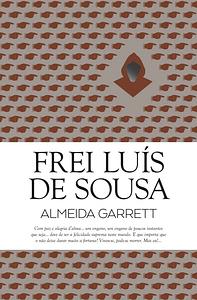Take a photo of a barcode or cover
tense
fast-paced
challenging
mysterious
sad
medium-paced
Plot or Character Driven:
A mix
Strong character development:
Yes
Loveable characters:
Complicated
Diverse cast of characters:
No
Flaws of characters a main focus:
Yes
considering it was mandatory for school, it was actually pretty good, nice plot i think
dark
emotional
mysterious
fast-paced
Plot or Character Driven:
Character
Strong character development:
Complicated
Loveable characters:
Complicated
Flaws of characters a main focus:
Yes
Não se compara, de maneira nenhuma, à pobre leitura que se fazia na escola.
The drama was published in 1844 and is considered the masterpiece of romantic theatre. And one of the masterpieces of Portuguese literature.
The play based on the life of Frei Luís de Sousa, which his secular name was D. Manuel de Sousa Coutinho. The plot has the background of the Philippine resistance to domination. In 1578, King D. Sebastião disappeared at the Battle of Alcácer-Quibir. There was a long dispute for succession—Filipe, king of Spain, among the suitors, annexed Portugal to his empire in 1580. Spanish rule would last sixty years (1580 to 1640). During this period, the popular myth of "Sebastianismo" was created, according to which D. Sebastião would return to rebuild the Portuguese empire. Among the nobles who disappeared in Alcácer-Quibir was D. João de Portugal, husband of Madalena de Vilhena.
D. Madalena de Vilhena, seven years after her husband (D. João de Portugal) disappeared in the battle of Alcácer Quibir, marries Manuel de Sousa Coutinho, with whom he forms a good and happy home and has a daughter, Maria. Thus, its existence is only disturbed by the sad forebodings of the fragile and sensitive Maria and Telmo, the old assistant, who is still waiting for the return of D. João de Portugal. So D. Madalena de Vilhena was always distressed by the possibility that her first husband was still alive. This situation lasted twenty years. In the end, D. João, alive, returned to Portugal, appearing disguised as Romeiro.
The outcome is tragic: Manuel de Sousa Coutinho and Madalena decide to take up the religious habit, and during this ceremony, Maria dies in the church at her feet.
The play based on the life of Frei Luís de Sousa, which his secular name was D. Manuel de Sousa Coutinho. The plot has the background of the Philippine resistance to domination. In 1578, King D. Sebastião disappeared at the Battle of Alcácer-Quibir. There was a long dispute for succession—Filipe, king of Spain, among the suitors, annexed Portugal to his empire in 1580. Spanish rule would last sixty years (1580 to 1640). During this period, the popular myth of "Sebastianismo" was created, according to which D. Sebastião would return to rebuild the Portuguese empire. Among the nobles who disappeared in Alcácer-Quibir was D. João de Portugal, husband of Madalena de Vilhena.
D. Madalena de Vilhena, seven years after her husband (D. João de Portugal) disappeared in the battle of Alcácer Quibir, marries Manuel de Sousa Coutinho, with whom he forms a good and happy home and has a daughter, Maria. Thus, its existence is only disturbed by the sad forebodings of the fragile and sensitive Maria and Telmo, the old assistant, who is still waiting for the return of D. João de Portugal. So D. Madalena de Vilhena was always distressed by the possibility that her first husband was still alive. This situation lasted twenty years. In the end, D. João, alive, returned to Portugal, appearing disguised as Romeiro.
The outcome is tragic: Manuel de Sousa Coutinho and Madalena decide to take up the religious habit, and during this ceremony, Maria dies in the church at her feet.
adventurous
emotional
mysterious
fast-paced
Plot or Character Driven:
Character
Strong character development:
No
Loveable characters:
Yes
Diverse cast of characters:
No
Flaws of characters a main focus:
Yes
O primeiro livro de leitura obrigatória que gostei realmente de ler.




